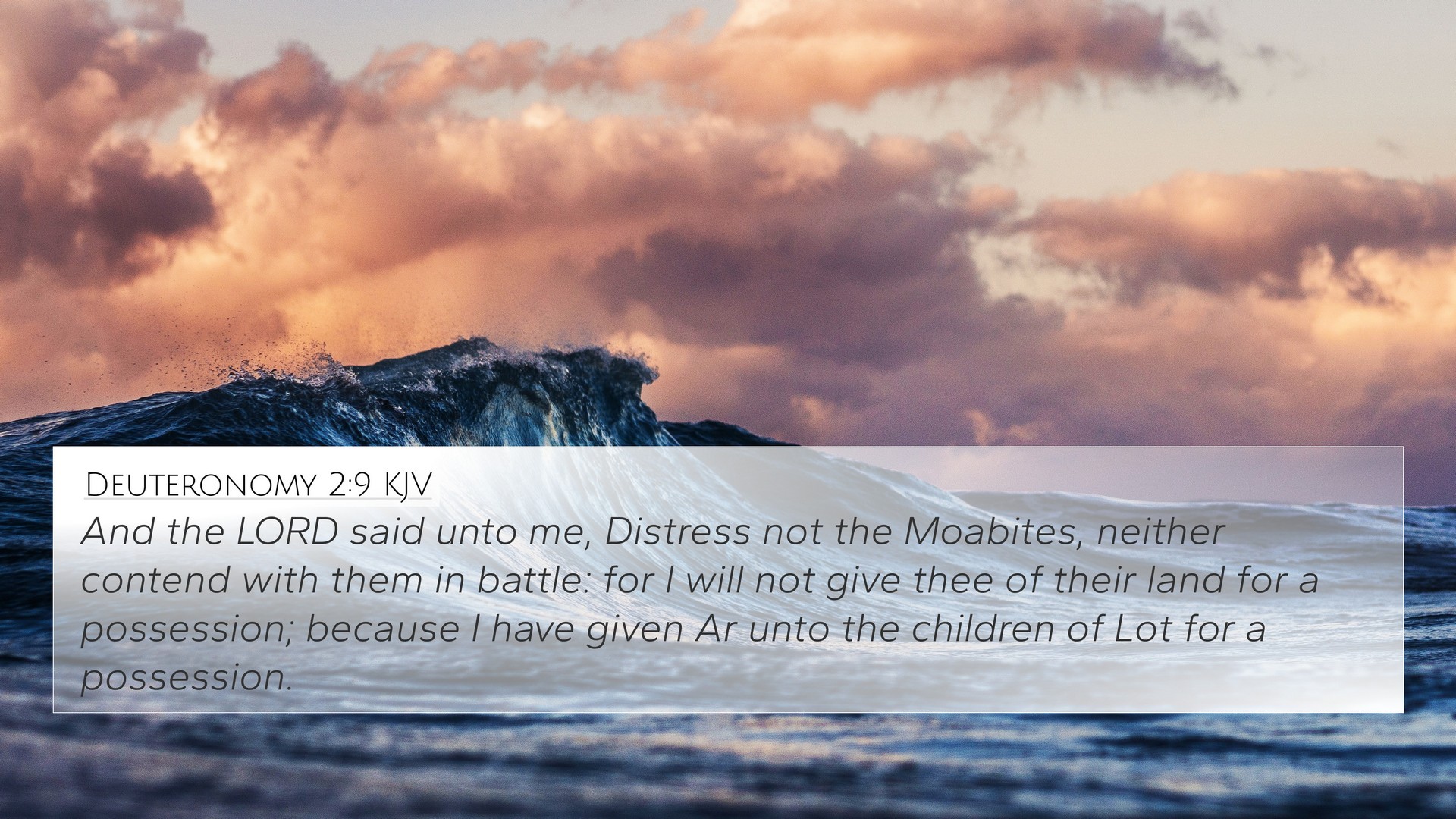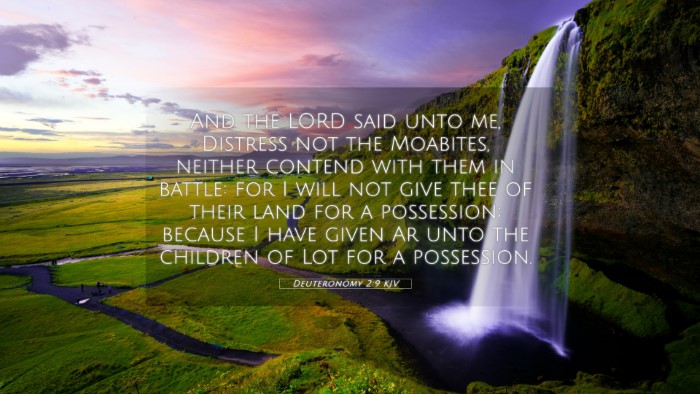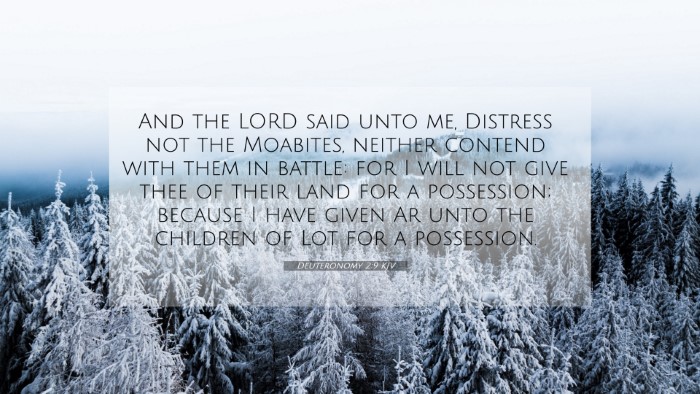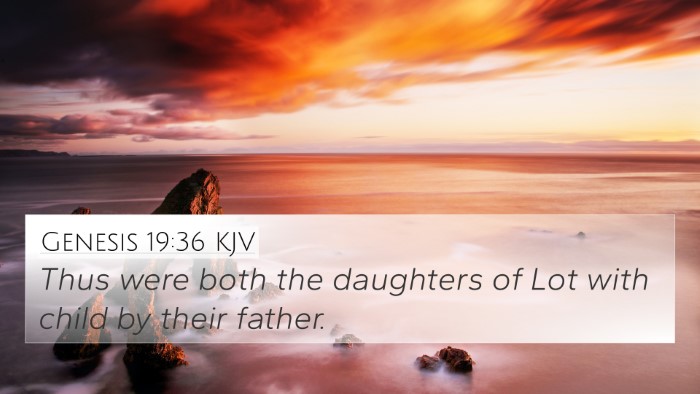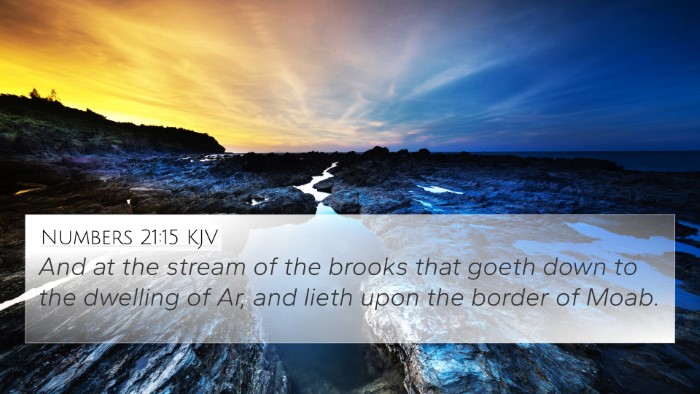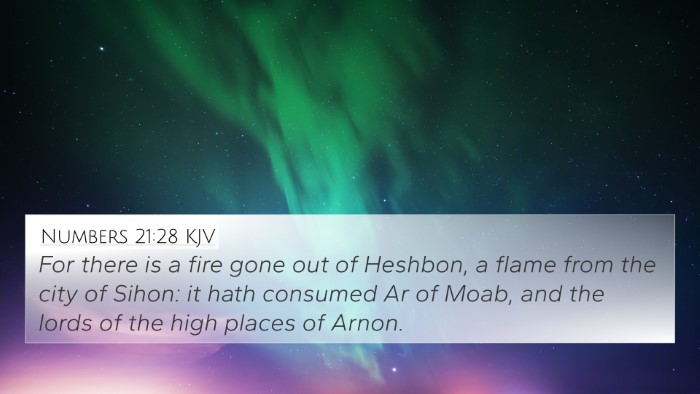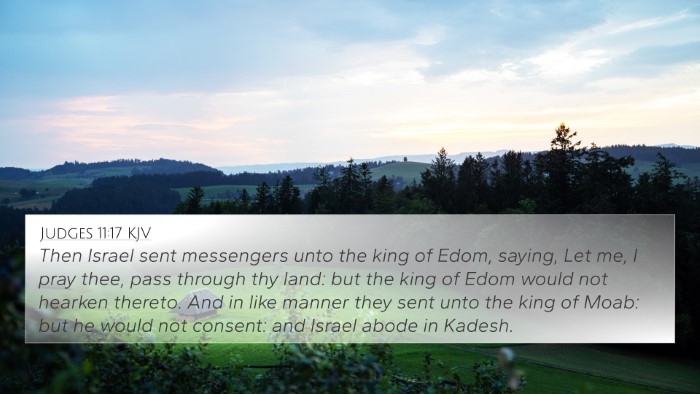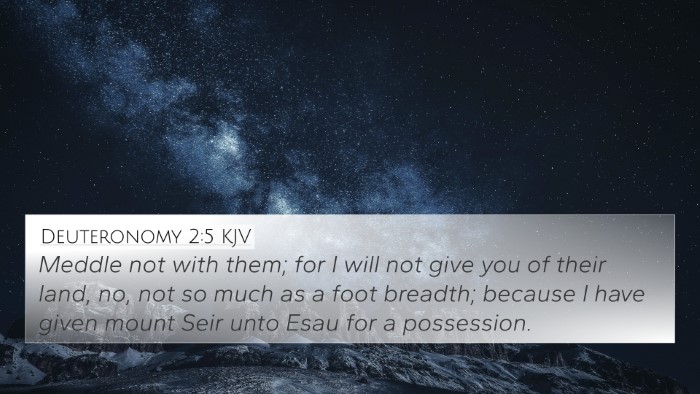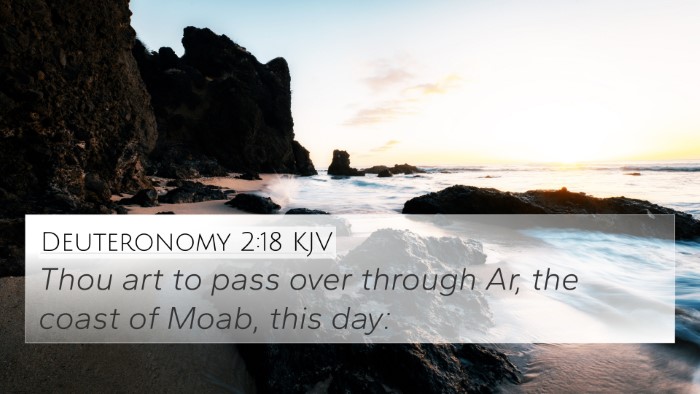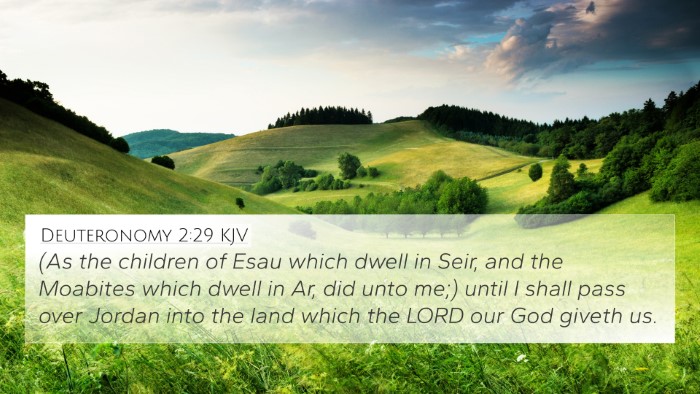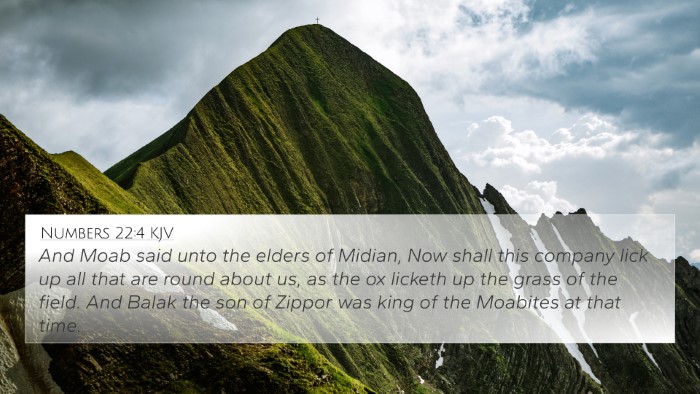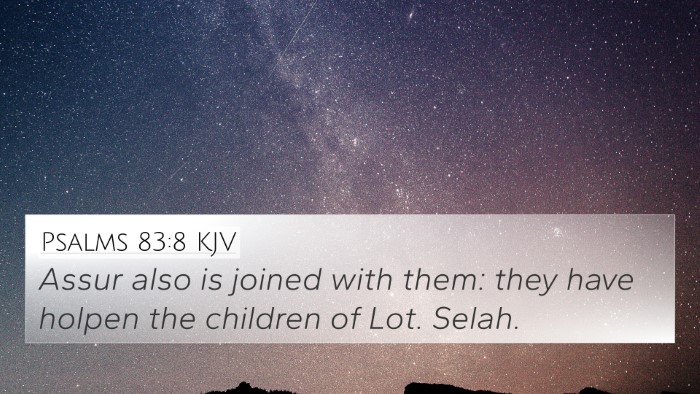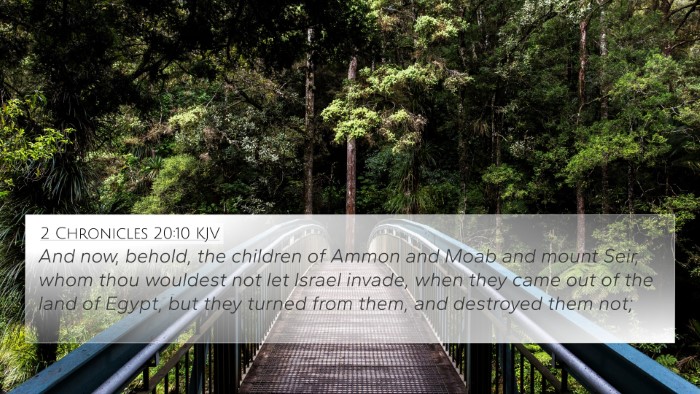Interpretation of Deuteronomy 2:9
Deuteronomy 2:9 states, "And the LORD said to me, Do not harass or contend with Moab, for I will not give you any of his land for a possession, because I have given Ar to the people of Lot for a possession." This verse signifies God's directive to Moses concerning the nation of Moab, which had historical and cultural significance for the Israelites.
Key Components of Deuteronomy 2:9
- Divine Instruction: The command issued by God to not engage with the Moabites underscored God's sovereignty over the nations and His specific plans for Israel.
- Land Ownership: God emphasizes that He has determined the boundaries of land, reinforcing that some lands are designated for certain peoples.
- Cultural Context: The Moabites were the descendants of Lot, highlighting a familial connection which affected their historical relationships with the Israelites.
Commentary Insights
From Matthew Henry's exposition, we learn that this directive is fundamentally about maintaining peace and focusing on God's promises rather than engaging in conflict. Similar sentiments are echoed in Adam Clarke's commentary, which emphasizes the importance of adhering to God's commands and recognizing His sovereignty over all affairs of nations. Albert Barnes adds that this instruction reveals God's overarching plan and His provision for the tribes of Israel.
Bible Verse Cross-References
Deuteronomy 2:9 connects with several other Biblical texts which illuminate its meaning:
- Genesis 19:36-38: This passage describes the origins of the Moabite people, providing historical context for their relationship with Israel.
- Numbers 21:13: Here, the Israelites are commanded not to disturb certain territories, reinforcing the notion of divinely allocated land.
- Deuteronomy 23:3-6: These verses provide further instructions concerning the Moabites and their exclusion from the assembly of the Lord.
- Isaiah 15-16: Prophecies concerning Moab provide insight into their future judgment and God's plans for both Moab and Israel.
- Jeremiah 48:1-10: Mourning for Moab is expressed, highlighting their eventual downfall and God's sovereignty over nations.
- Psalms 108:9: "Moab is my washpot" illustrates God's contempt for Moab and His authority over them.
- Romans 15:4: Refers to the importance of Old Testament Scripture for teaching and understanding God’s plan, connecting the relevance of Deuteronomy 2:9 to broader theological themes.
- Revelation 12:1–17: Although a New Testament passage, it symbolizes the ongoing conflict and promise of God's preservation for His people against any adversaries.
Thematic Bible Verse Connections
The theme of God's providential care and designated land for His people is also echoed in:
- Joshua 1:3: Promising the Israelites the land as He spoke to Moses.
- Psalm 37:29: "The righteous shall inherit the land," underscoring God's promise to His people.
Conclusion
Deuteronomy 2:9 serves as a crucial reminder of God's sovereign choice in the distribution of lands and His specific purpose for the nations. Understanding this verse through the lenses of various commentaries provides a deeper theological appreciation. Through cross-referencing Bible verses, one can see the intricacy of God’s plans and the fulfillment of His promises. This insight is beneficial for those engaged in Bible studies or thematic teachings, enhancing one's comprehension of inter-biblical dialogue.
For those seeking to study Bible verse parallels, exploring tools for Bible cross-referencing, such as concordances and reference resources, will illuminate these connections further and enhance understanding of Biblical texts.
